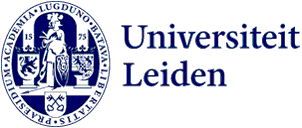
Violations of law during armed conflicts should be investigated – also by Russia
The chance that it will do so is about zero, but Russia is legally obliged to investigate violations of law during the war in Ukraine. States that enter into an armed conflict often deny liability, but under international humanitarian law and human rights they are obliged to investigate their military actions, Floris Tan concludes. PhD defence on 19 May.
Hiding behind ambiguity
According to Tan, states often hide behind ambiguity in the law to escape an awkward investigation. For example, a frequent argument is that international humanitarian law does not create an obligation to investigate and that violations of human rights during armed conflict do not have to be investigated because that would be too demanding in times of war. Moreover, human rights only apply in peacetime it is claimed. Nonsense, says Tan.
‘That there is war doesn’t mean people no longer have human rights’ - Floris Tan
‘What I show in my thesis is that under international humanitarian law states are obliged to investigate violations of that law,’ says Tan. This also applies to human rights violations. ‘That there is a war doesn’t mean people no longer have human rights, so violations must also be investigated and primarily by the country that has deployed its armed forces.’
Russia is a party to the Geneva Conventions and – for now at least – to the European Convention on Human Rights as well as to other international human rights treaties, says Tan. This obliges the country to investigate its own military action, for example in the Ukrainian town of Bucha, where hundreds of civilian victims were found after the withdrawal of Russian troops.
Political shift needed
A fact-finding mission must establish exactly what happened. Then there has to be a legal analysis of whether international law has been violated. If so, the state must be held responsible and the perpetrators prosecuted and punished. Tan: ‘Unless there is a political shift in Russia, it is highly unlikely that the country will investigate its own armed forces. But that is one of the basic principles of international humanitarian law.’

War victims
A thorough investigation is important not only for holding a country like Russia accountable and convicting war criminals but also for the country’s democratic process and even its historiography. But above all, it is the only way for the victims of war to find answers to the question of what happened to them.
‘For war victims it is impossible to determine what happened to them and their loved ones’ - Floris Tan
‘For war victims it is impossible to determine what happened to them and their loved ones, especially when their loved ones just disappear. This makes it important that a thorough investigation uncovers the truth, if only to help them find some kind of acceptance.’
Tan hopes that his research can make a contribution – however small – to justice for war victims and accountability for perpetrators. But he remains realistic: ‘Suffering during wars will continue, but what we can and must do something about is how we deal with it afterwards.’
Text: Tim Senden
Photos: ANP
